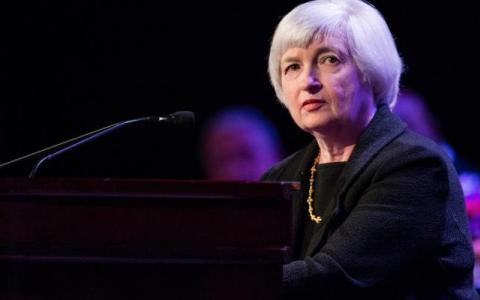
Outgoing Federal Reserve Chair Janet Yellen said U.S. stocks and commercial real estate prices are elevated but stopped short of saying those markets are in a bubble.
“Well, I don’t want to say too high. But I do want to say high,” Yellen said on CBS’s “Sunday Morning” in an interview recorded Friday as she prepared to leave the central bank. “Price-earnings ratios are near the high end of their historical ranges.”
Commercial real estate prices are now “quite high relative to rents,” Yellen said. “Now, is that a bubble or is it too high? And there it’s very hard to tell. But it is a source of some concern that asset valuations are so high.”
Yellen, 71, stepped down as Fed chief on Saturday after one term, after President Donald Trump opted to replace her with Republican Jerome Powell, who’s been a Fed governor since 2012.
“I made it clear that I would be willing to serve, so yes, I do feel a sense of disappointment” about not being renominated, Yellen said. The only woman to serve as the head of the U.S. central bank described her work at the Fed as “the core of my existence.” Yellen said she’s supportive of former investment banker Powell, 64, whom she termed “thoughtful, balanced, and dedicated to public service.”
Greater Resilience
The financial system is now “much better capitalized” and the banking system “more resilient” than they were entering the global financial crisis a decade ago, Yellen said.
“What we look at is, if stock prices or asset prices more generally were to fall, what would that mean for the economy as a whole?” Yellen said. “And I think our overall judgment is that, if there were to be a decline in asset valuations, it would not damage unduly the core of our financial system.”
Yellen’s final act at the Fed was to hit one of the largest U.S. banks, Wells Fargo & Co., with an unusual ban on growth that follows the San Francisco-based lender’s pattern of consumer abuses and compliance lapses.
In the interview that aired Sunday, she warned that it would be a “grave mistake” to roll back the regulations put on banks after the previous economic collapse.
The current U.S. economic expansion is now approaching nine years and is the third longest in duration since 1945, according to the National Bureau of Economic Research. Yellen said the economy can continue to grow. “Yes, it can keep going,” she said. “Recoveries don’t die of old age.”



